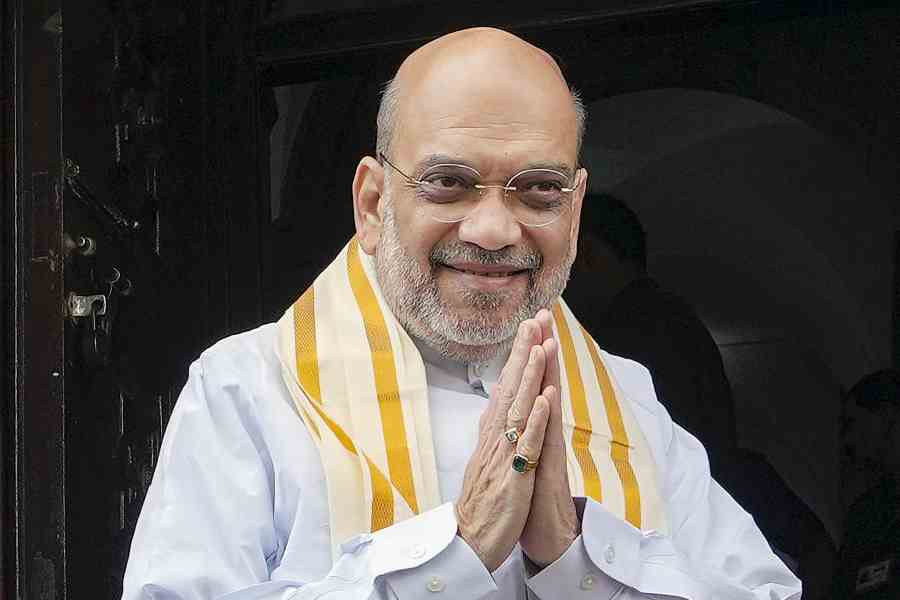Union Home Minister Amit Shah on Sunday said the three proposed criminal laws are people-centric, have the flavour of Indian soil and their main purpose is to protect the constitutional, human and personal rights of citizens.
Addressing the International Lawyers' Conference organised by the Bar Council of India here, Shah also said the approach of the three bills is also to provide justice rather than mete out punishment.
He appealed to all lawyers in the country to provide their suggestions to the Bharatiya Nyaya Sanhita (BNS-2023), Bharatiya Nagarik Suraksha Sanhita (BNSS-2023) and the Bharatiya Sakshya Adhiniyam (BSA-2023) so that the country can have the best laws that benefit all.
The three bills, which were introduced in the Lok Sabha on August 11, will replace the Indian Penal Code, 1860, Criminal Procedure Act, 1898, and the Indian Evidence Act, 1872 respectively.
"India's criminal justice system was imprinted with colonial law. All three new bills do not have colonial imprint but have the flavour of Indian soil. The central point of these three proposed laws is to protect the constitutional and human rights of citizens as well as their personal rights," he said.
Shah said the initiative has been taken to comprehensively change the criminal laws keeping in mind the present-day demands.
"These laws are coming after almost 160 years with a completely new approach and new system. Along with new initiatives, three initiatives have also been taken by the government to create a law-friendly ecosystem," he said.
The first is e-courts, the second inter-operable Criminal Justice System (ICJS)and the third is adding new technology to these three proposed laws, Shah said.
"With the introduction of three laws and three systems, we will be able to remove the delays in our criminal justice system in less than a decade," he said.
Shah said the basic objective of the old laws was to strengthen the British rule and the purpose was to punish, not to do justice. "The purpose of these three new laws is to provide justice, not punishment. Here is a step to deliver criminal justice." He said many changes have been made in the new laws to promote technology and the definition of documents has been greatly expanded.
"Legal recognition has been given to electronic and digital records, messages available on digital devices have been recognised and summons will also be considered valid in all types of electronic modes — from SMS to email," he said.
The home minister said a new provision has been added with regard to mob lynching and the section related to sedition has been abolished and legalising the community service will also be done under these new laws.
"I want to make an appeal to all the lawyers across the country to look at all these bills in detail. Your suggestions are very valuable. Send your suggestions to the Union Home Secretary and we will definitely consider those suggestions before finalising the laws," he said.
Shah said Prime Minister Narendra Modi believes that any law can become perfect only when stakeholder consultation is done wholeheartedly.
He also said the system of complete justice can be understood only when one goes to study the laws that touch every part of society.
Except for the headline, this story has not been edited by The Telegraph Online staff and has been published from a syndicated feed.











